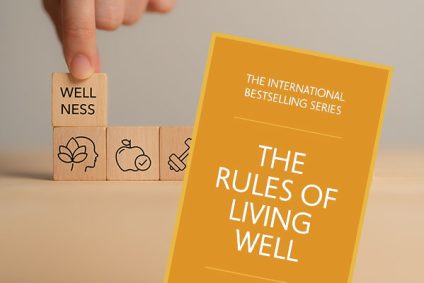How do we live a meaningful life? In this book, psychologist Jordan B. Peterson gives some answers. Drawing upon ancient and modern wisdom – both secular and religious – as well as his own clinical practice, Peterson offers 12 principles (or “Rules”) which everyone can follow to find more purpose. His central claim is that these help bring more order to the “chaos” in our lives, and give us tools to approach and manage it properly. If you want a readable, engaging book that helps you discover the “most valuable things you should know”, this may be it.
Have you ever asked yourself questions such as: “Which things get better as you get older?”, “Is there a difference between being content and being happy?” “What brings more meaning to life?” Peterson’s 12 Rules are each written in an essay-like format, complete with useful anecdotes and musings, to help bring some insight. Each is highly memorable and useful. For example, the first Rule is: “Stand up Straight With Your Shoulders Back.” This is not really a reference to physical posture (although that can be important for your mindset). Rather, it means accepting the terrible responsibilities of life, with your eyes wide open. In other words, don’t see yourself as merely a victim to the chaos in your life – choose to take courage and believe in yourself.
Famously, Peterson uses the analogy of “The Lobster” to make his point. In lobsters, a neural circuitry exists in their brains to help them track their position in the social hierarchy. The higher their position, the more access they have to mates, food and shelter. Lobsters ascend or descend this hierarchy through competition, and their position affects their mental state – which then manifests in their physical posture. Humans have the same neural circuitry in their brains, after diverging from lobsters about 350m years ago, and we are also affected psychologically by how we perceive ourselves in the “social hierarchy”. If we see ourselves as “higher up”, then we can more confidently stand upright and say to ourselves: “Whatever life throws at me, I can handle it”. Someone who sees themselves as a “loser”, however, will likely slope their shoulders and say to others: “Please don’t hurt me; let me be!” The key, therefore, is to adopt the physical posture of a winner. For instance, if you feel weak and defeated, then standing up straight helps you to feel strong and confident.
Peterson’s book is full of humorous – yet helpful – insights and reflections like these. The book does take a somewhat scolding tone at times, and it can feel like you are being given a dressing down sometimes by a sports coach. Yet, for many readers, this is arguably what’s sometimes needed to get us “out of ourselves” so we can see our situation more clearly. Peterson himself has attracted a high degree of notoriety due to his views on issues such as gender, masculinity and culture. As such, some may find their digestion of this book inhibited somewhat by what they may have heard or read elsewhere about the author. Our recommendation is to take the book in its own right, since it has much to say that’s of value.
In closing, 12 Rules For Life can be dispiriting in the sense that it claims that “suffering is built into the structure of being”. However, it is immensely uplifting by stating that humans can both face and transcend it. Seeking happiness, Peterson argues, is never a good idea. Seeking meaning, however, is a noble message which can also be found in ancient wisdom (e.g. the Bible) as well as modern stories such as The Lion King and Harry Potter. This is a powerful book which we recommend you take time to read for yourself.





